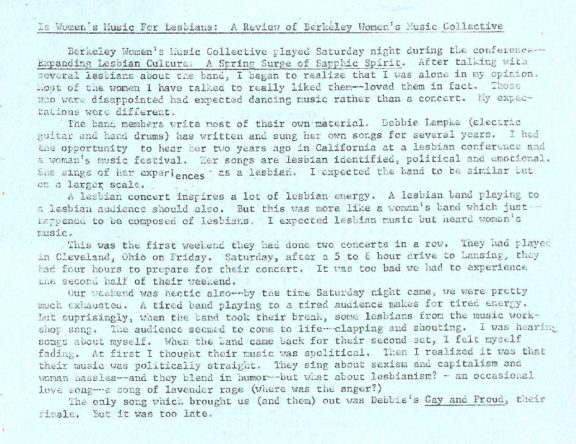In this concert review from Lesbian Connection, “Goldi” highlights the divide in the women’s music movement between music for straight women and music for lesbians, stating that the Berkeley Women’s Music Collective “was more like a woman’s band that just happened to be composed of lesbians.”
Since the review was written in 1975, it can be inferred that the band was playing material from their first album (the second was released in 1978) — an album that was heralded as the more political of the two. The author does state that “after talking with several lesbians about the band” she realized that she was alone in her opinion that the Collective’s songs lacked lesbian identity, and that most of the audience enjoyed the band’s performance.
Her review is followed by an editorial note, which underlines that the review was written not from a musical point of view but from a personal one; the editors also invite further commentary on lesbian music and the BWMC. Further down the page was an address for readers to contact the BWMC directly.
***
In her essay, “Sex and Laughter in Women’s Music, 1970-77”, Sarah Dougher argues that “women’s music and musical environments were important to the creation of lesbian-feminist solidarity” (38). In the women’s liberation movement, especially in the late sixties while it was coming to fruition, there was a divide between lesbians and straight feminist women that stemmed from the patriarchal assumption that all feminists were homosexual. As a result, “in the women’s music movement, which was itself a lesbian-feminist cultural project, deemphasized sexuality was…ubiquitous in song lyrics and in the separatist contexts in which the music took place” (Dougher 36).
